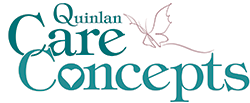
The many tasks of caregiving can be so overwhelming that you just start doing things, maybe before you have really taken in what actually needs to be done. It is important to take the time to listen—to the person you are caring for, to the other people caring for them, and to yourself.
Listening to the Patient
You may be caring for someone who needs assistance with day-to-day chores and tasks but can still make their own decisions about personal matters such as medical care, financial and household issues. Take some time to listen and explore what kind of help they want. Often what we think someone wants or ought to want is not what they want at all. Sometimes people resist asking for help, even when it is clear they would benefit from assistance. If that is the case, start small and know that over time things will change as they learn to talk with their inner circle and realize what they want help with.
Knowing and understanding what someone wants will be important if you become responsible for making decisions for them. Read up on advance directives which will help you talk about medical decisions and fill out the documents. Not every situation can be anticipated so it is helpful to understand in general what is important to the patient—what they see as quality of life.
Listening to the doctors and other healthcare workers
You can offer to go to appointments with the patient and assist by taking notes and keeping track of papers, reports and prescriptions as you and the patient talk to the doctor. Take along the list of questions you generated together. Check with the patient during the appointment to be sure they are getting the information they want and need. Repeat back to the doctor any instructions to be sure they have been understood correctly.
Listen to yourself and reach out for information and support
Caregiving can be quite rewarding, and it can be quite challenging. Try not to have rigid expectations of how it will go or how you will feel. Showing up is good; perfection is the enemy. There are resources available to caregivers through government sponsored websites like MyHealthfinder as well as private organizations such as AARP and Caregiver Action Network.
Seek support groups of people caring for like patients; there are many online and in person. The National Institute of Aging, the CDC, the National Alliance on Caregiving, and AARP all are rich resources for help and connections. The American Cancer Society, the American Heart Association, and the Alzheimer’s Association as well as many other disease specific associations all have good information for caregivers.
